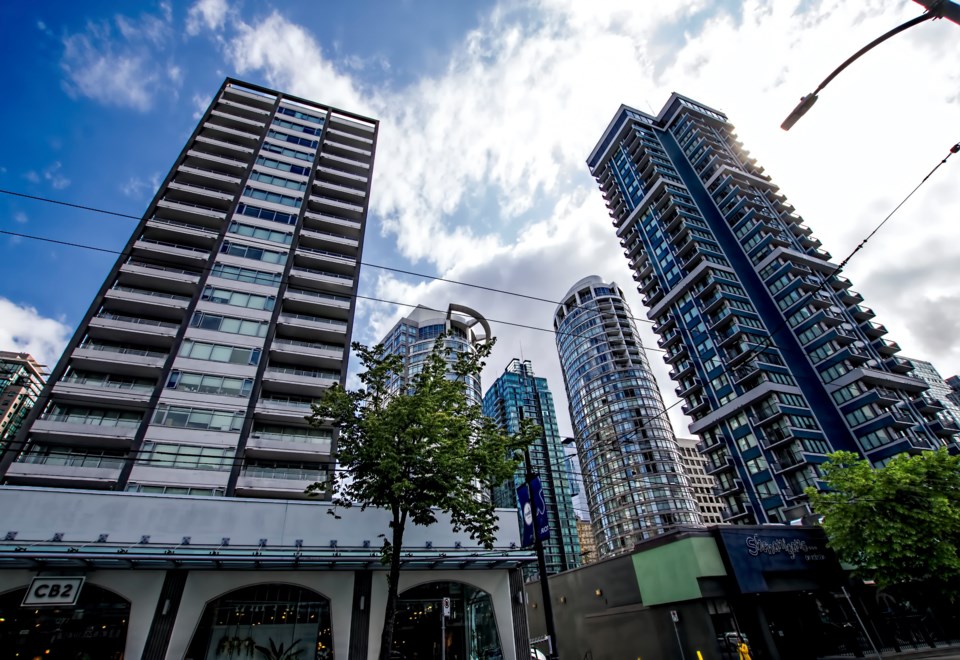Some strata corporations renewing their insurance policies may be surprised to encounter lower premiums, especially in light of high building replacement costs and tariffs.
One prominent strata management firm says it’s seen a 19-per-cent average decrease in premiums for its portfolio’s insurance renewals over the past year, even though today’s elevated construction costs would normally push premiums higher.
“Despite the building replacement costs increasing, resulting in the need for additional insurer capacity and insurance, the premiums are still seeming to fall,” said Sean Ingraham, senior vice-president with FirstService Residential.
Strata insurance is based on a building’s replacement value. Because of B.C.'s high construction costs, potentially exacerbated by tariffs, he said it would cost more to replace any given building in the event of a total loss, a key determinant of insurance rates.
Yet premiums are unexpectedly moving in the opposite direction.
“If we were to take into consideration the increased building values when looking at the overall premium reductions, we are looking at [an] average 24-per-cent reduction” from 2024 to present, he said.
Reasons for the soft insurance market may include higher underwriting profits, higher investment income, sustained ongoing profits, or new insurers entering the market and adding to supply and competition, according to Paul Murcutt, senior vice-president with BFL Canada Realty.
The last time rate movement was negative was in 2018, according to a BFL presentation shared by Murcutt.
FirstService Residential’s Ingraham said some buildings are seeing better insurance rates than others. For example, frame construction premiums are higher than concrete highrise premiums, with the latter seeing a deeper reduction.
Other factors include a property’s loss history, geographic area, age, maintenance history and current insurance capacity, he said.
“Insurance rates are starting to return to a more palatable level, so as insurance rates cool, it’s actually helping strata corporations because their operating costs are going up,” he said.
One reason for higher operating costs is the growing complexity of residential developments, which may have district energy systems, mixed uses, airspace and other easement agreements, and multiple lobbies and elevator banks, he said.
The insurance policies that strata corporations purchase are distinct from those that individual unit owners generally purchase.
The province’s stratas are seeing some premium relief, but it may be fleeting.
“The insurance market is forever changing,” Ingraham said.



